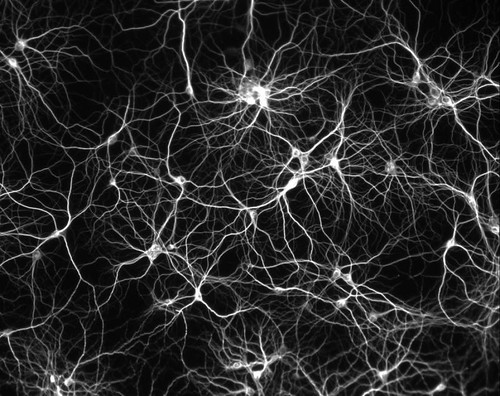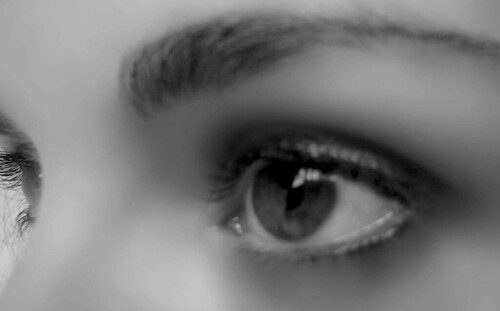Ok,
last time I said how there were those who liked to talk about chatting up consciousness and those who actually did it. Here we are going to cover the former and specifically talk about what the problem is and how to approach it. This is a difficult area to get your head around. Let's try and make it a bit clearer.
First, make notes about what the problem is.
I find this is best stated by Chalmers (1995). You need to read this paper.
Here you go. Briefly, he indicates that consciousness has two problems: the easy one and the hard one. The easy one is equivalent to the daily findings of cognitive science: how memory, attention, vision and so on work. Chalmers says these problems have computational solutions. In his words, the hard problem of consciousness is “the problem of experience. When we think and perceive, there is a whir of information processing, but there is also a subjective aspect. As
Nagel (1974) has put it, there is something it is like to be a conscious organism. This subjective aspect is experience. When we see, for example, we experience visual sensations: the felt quality of redness, the experience of dark and light, the quality of depth in a visual field."
Second, make notes about approaches to solution of this problem.
I'd split them up like this:
Fuck it. We'll never know
Also known as
mysticism this view explains the problem by denying that science will ever be able to explain consciousness. This was a position popular in the scientific community until about 30 years ago. At the centre of the issue is that while consciousness is the most piquant subjective experience, science is objective - and never the mismatch shall be resolved.
Searle (1998), however, argues that this problem arises from a confusion about two different kinds of objectivity. The first kind of objectivity is something that is
epistemically objective (or know as fact), like “The building has two front doors”.
Epistemically subjective information would be something like, “The doors of the building are unattractive”. The second flavour of objectivity is ontological (that something exists). Thus returning to the building one will find the two front doors existing. However, ontological subjectivity would be feeling pain from closing one’s finger in a door. What
Searle argues is that science concerns itself with epistemic objectivity and not epistemic subjectivity. However, he also claims that it can concern itself with ontologically subjective events.
There is also a related view that consciousness is something that is systemically insoluble by humans minds (
maybe the dolphins or mice know?)
. You can find this in the writings of
McGinn (1989, 2000)
It's not a problem
There are those who explain the problem of consciousness by denying it's actually a problem.
Dennett (1993) is one of these. He suggests that “[p]
ostulating special inner qualities that are not only private and intrinsically valuable, but also
unconfirmable and
uninvestigatable is just obscurantism." (p.450). To this
Searle (1998) replies, "I would not have thought that this thesis - that consciousness could be treated separately from consciousness was widely held until I discovered it in several recent books on consciousness (Crick 1994,
Edelman 1989). The basic idea is that the problem of
qualia can be carved off from consciousness and treated separately; or better still, simply brushed aside. There are not two separate problems, the problem of consciousness and then a subsidiary problem the problem of
qualia. The problem of consciousness is identical with the problem of
qualia, because conscious states are qualitative states right down to the ground. Take away
qualia and there is nothing there." (p.1938). I love academic cat fights.
Another approach under this category is to suggest that integrated holistic conscious experience is an illusion. Proponents of this view suggest that the brain has many parallel processes occurring and we make an error in assuming these processes are connected. Dennett (1991) is the principle advocate of this position. One problem I have with this is that consciousness does have an objective ontological reality to us - it's there now, it's the feel of your arse on the seat - and that needs to be explained (maybe a broader explanation than that of just arses though.) Bechtel (1995) also agrees that we must question the notion of a unified consciousness and he offers a way out suggesting that qualia may not be an objective fact but rather an illusion mediated by language. This idea of grand interpreter is also in Gazzaniga's work.
Physical accounts of consciousness
Then there are the physical account of consciousness. They assume that our current understanding of the world is good enough to understand consciousness (eventually).
- a biggie. Worth knowing lots about this. At its most basic it says that consciousness is maths. Once we understand the brain's maths we understand consciousness. There are lots of objections including:
- Inverted spectra/
qualia (Block and
Fodor, 1972)
- Multiple
realizability (Block, 1980)
- Intentionality (
Searle, 1980)
Then there are the rejoinders. Read the article I wrote on
Functionalism for more.
(Note, I call this digital functionalism. This means 1s and 0s. Neurons on or off. I would consider quantum explanations still functionalist because they are still computational, just the mechanics of the computation are of a different flavour. This might be a handy technicality for an essay on functionalism. That is, you can knock down digital functionalism and replace it with quantum functionalism.)
Eliminative Materialism - This position is essentially a reductionist one advocating that science can deconstruct higher order properties into lower order properties of the physical world. Once we understand every neural interaction, we understand consciousness. This is just functionalism given a neural reality.
Non-eliminative Materialism - Like
eliminative materialism this position suggests that consciousness can be explained by the physical world. However, unlike
eliminative materialism it is impossible to understand higher order properties simply by reference to the lower order properties. Rather at certain levels of complexity there are emergent properties of a system. As
Searle (e.g. 1998, 2000) asks, ‘Is a single water molecule wet?’ Again, this is functionalism and a more sensible functionalism in my view. You can't explain the Internet by talking about a single line of code in the Google system. See
Churchland and
Churchland (1997) for more.
Exotic physics -
There are those that think (digital) functionalism is an adequate way of explaining consciousness, like
Nagel (1993). He suggests that “…it is inevitable that the pursuit of [an account of consciousness] will lead to an alteration of our conception of the physical world.” (p.3). He thus goes onto to claim that, “[i]n the long run, therefore, physiological psychology should expect cosmological results." (p.3).
Penrose (1994) and
Hameroff (1998) are the key proponents of this type of fundamental revision. More recent examples include explorations of deep quantum chemistry by
Ventegoot et al (2006). A good review can be found in Faber, Portugal and Rosa (2006). Note: you don't need to understand quantum physics to talk about this.
Non-physical accounts of consciousness
Chalmers (1995) comments on such exotic mathematical theories of consciousness: "At the end of the day, the same criticism applies to any purely physical account of consciousness. For any physical process we specify there will be an unanswered question: Why should this process give rise to experience? Given any such process, it is conceptually coherent that it could be instantiated in the absence of experience. It follows that no mere account of the physical process why tell us why experience arises. The emergence of experience goes beyond what can be derived from physical theory."
As a result Chalmers offers up
panprotopsychism because
the explanatory gap between the easy and hard problems of consciousness will never be bridged by a) functionalism, b) a radical revision of our understanding of matter or c) by assuming that to understand consciousness is beyond the capabilities of the human mind or science. Panprotopsychism argues that consciousness is a fundamental property of the universe. He suggests "that a theory of consciousness should take experience as fundamental....a theory of consciousness requires the addition of something fundamental to our ontology as everything in physical theory is compatible with the absence of consciousness".
Chalmers argues that the Universe’s basic feature is information and this can be either physical or phenomenal. This view is therefore a dualist one, although one compatible with the scientific world view. Information is something, ac
cording to Chalmers, that is over and above the properties of physics. Chalmers indicates that this position might indicate how the experiential arises from the physical. Furthermore, this experience is graded according to the level of complexity of the system. "Where there is simple information processing, there is simple experience, where there is complex information processing there is complex experience. A mouse has a simpler information processing structure than a human, and has correspondingly simpler experience; perhaps a thermostat, a maximally simple information processing structure, might have maximally simple experience?" This theory is important because it is alone in creating the explanatory bridge between matter and experience.
Nonetheless the critics have attacked; for example,
Searle (1997): "What is it about the functional state that does the job of 'giving rise' to consciousness? It is he says, information. Not information in the ordinary common-sense meaning of the word in which I have information about how to get San Jose, but in an extended 'information theory' sense, in which any physical 'difference that makes a difference' in the world is information. According to Chalmers conception of information, rain hitting the ground contains 'information', because it makes changes in the ground. But if consciousness arises from information in this sense then: consciousness is everywhere. The thermostat is conscious, the stomach is conscious, there are lots of conscious systems in my brain of which I am unconscious, the Milky Way is conscious, there are various conscious systems in any stone..and so on...This absurd view...is a direct consequence of attempting to explain consciousness in terms of 'information' in this denuded technical sense of the word....It is to Chalmers credit that he sees the consequences of his views; it is not to his credit that he fails to see that they are absurd.” (pp. 155-156).
Overall, if you get the philosophy of
consciousness sorted you'll have a sure question to answer come the exam. To date, there has always been a question about it. Note that frequently the question "Can science explain consciousness" or some variation of it appears. Just because the word science is in there
doesn't mean you have to talk about science. You can easily take that question on at the
philosophical level (i.e. you could answer 'No, science can because science is based on functionalism and functionalism doesn't work' or whatever.)
Next time we'll move on to more specific theories of consciousness and what sort of things you should be doing in your revision with them.




















